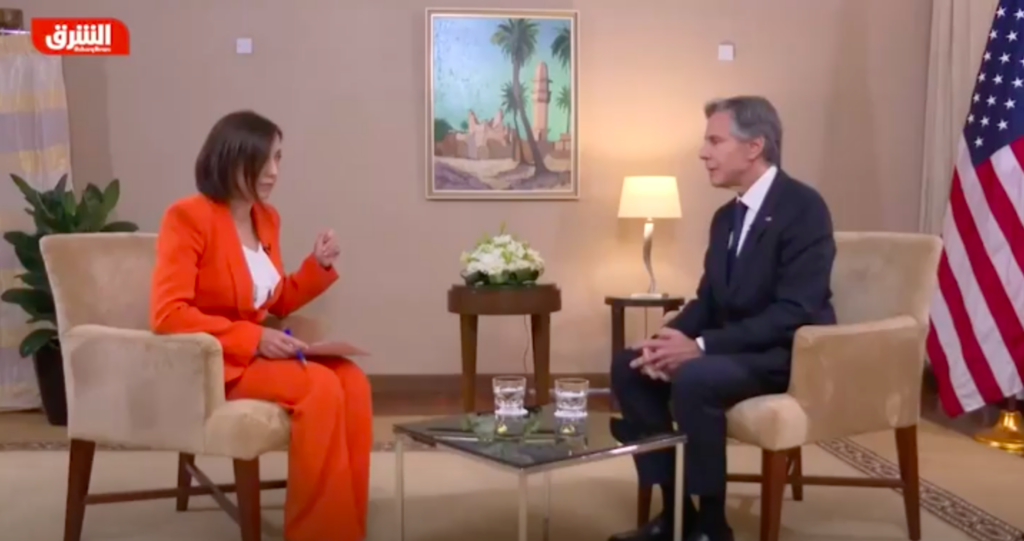
- ARAB NEWS
- 02 Jul 2025

RIYADH: The decades-long strategic relationship between Saudi Arabia and the US remains strong and is going through a period of “increasing convergence,” Secretary of State Antony Blinken said on Thursday.
During an official trip to Saudi Arabia, Washington’s top diplomat told Hiba Nasr of Asharq News that the Kingdom and the US are successfully working together despite “a difference in views” over the decision by OPEC+ nations last October to cut oil-production targets.
“We’ve had a partnership together for decades that was grounded in security, in cooperation, energy and, in recent years, counterterrorism, and that foundation remains,” Blinken said.
“But what we’re also seeing — and what this visit reconfirms — is that there are important opportunities for our two countries to work together to advance some very positive issues, very positive trends.”
Blinken, who attended a Global Coalition Against Daesh conference in Riyadh this week, said the deescalation of tensions in the Middle East was a priority for both countries, but that the Kingdom and the US have also been working together well on a “positive trajectory based on interests we share” in other arenas.
This includes “collaboration between our countries in addressing some of the challenges that not only are of concern to our people but to people around the world, from health security to climate security to energy security to food security and, of course, the transition to clean energy, working on emerging technologies,” he added.
Blinken said the US is not abandoning the Middle East in the face of growing Chinese and Russian influence and is “here to stay” in the region.
“Day-in, day-out, we’re working with partners throughout the region and what I hear in almost all of my engagements is the US remains the No. 1 partner of choice; that is clear in what I hear, what we hear from all of our partners,” he added.
“And we’re engaging with them, working with them both to deal with many of the challenges (that you just talked about), which are real and urgent and acute, but also — and this is so important — on an affirmative agenda for the future; not just dealing with the crisis but actually trying, together, to build a better future for our people in the US and for people throughout this region.
“So, yes, we’re dealing with crises, we’re dealing with security challenges, but we’re also dealing with an affirmative agenda. And across the board on all of that, as I said, what I hear again and again is the US is our preferred partner. We are a partner and we’re here.”
On the issue of the recent Beijing-brokered agreement between Iran and Saudi Arabia, Blinken said any and all contributions by countries, including China, to the advancement of peace in the region is a positive step.
“We applaud what happened,” he said. “Anything that deescalates tensions, that takes at least one problem off of the agenda, and in this case also may have the additional benefit of helping to advance a peace in Yemen, we think is a good thing.
“Of course, the Saudis and Iranians have been talking together for at least a couple of years to get to this place. We’ll see what happens now.
“If countries — including China — can play a positive role, wherever it is, in helping to advance peace, to reduce tensions then, again, I think that’s positive, that’s what we should all be trying to do.”
Blinken also praised Saudi Arabia for its role in joint humanitarian efforts and its attempts to help end the conflict in Sudan.
“We had, by the way in very close partnership with Saudi Arabia, some success in getting very limited ceasefires that were highly imperfect but did allow more humanitarian assistance to get in (to Sudan) and reach about 2 million people that otherwise would not have had this assistance provided to them,” he said.
With both sides in the conflict increasingly ignoring truce commitments, Blinked added that if neither side was serious about the ceasefire process, Washington has “tools at its disposal” to help bring about a lasting peace.